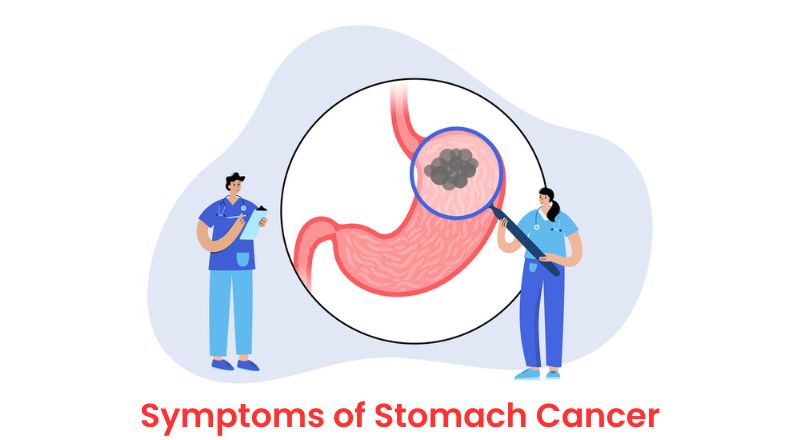Stomach cancer, also known as gastric cancer, is a type of cancer that begins in the lining of the stomach. It is a serious condition that can lead to severe health problems and even death if not detected and treated early. The symptoms of stomach cancer can be subtle and may not appear until the cancer has progressed to later stages, which is why it is important to be aware of them. In this blog, we will discuss the various symptoms of stomach cancer and what you should know about this condition.
Abdominal Pain
One of the early symptoms of stomach cancer is abdominal pain. This can occur in the upper part of the abdomen, near the stomach, and may feel like a dull ache or burning sensation. The pain may be more pronounced after eating and can also be accompanied by bloating, gas, and indigestion. In some cases, the pain may be severe and spread to the back, chest, or shoulder. If you experience abdominal pain that persists or becomes more intense over time, it is important to seek medical attention.
Nausea and Vomiting
Nausea and vomiting are common symptoms of stomach cancer. You may feel sick to your stomach, especially after eating, and have trouble keeping food down. In severe cases, you may experience frequent episodes of vomiting, which can lead to dehydration and weight loss. If you are experiencing nausea and vomiting that are not improving, it is important to seek medical attention.
Loss of Appetite
Another early symptom of stomach cancer is loss of appetite. You may not feel hungry or may find it difficult to eat, which can result in weight loss. You may also experience changes in taste or develop aversions to certain foods. If you are losing weight and not feeling hungry, it is important to seek medical attention.
Fatigue
Fatigue is another common symptom of stomach cancer. You may feel weak and tired, even after getting enough sleep. This can be due to anemia, which is a condition that occurs when you do not have enough red blood cells. Anemia can be caused by internal bleeding, which is a common complication of stomach cancer. If you are experiencing fatigue, it is important to seek medical attention.
Heartburn and Indigestion
Heartburn and indigestion are common symptoms of stomach cancer. You may feel a burning sensation in the upper part of your abdomen and have trouble swallowing. You may also experience bloating, gas, and constipation. If you are experiencing heartburn and indigestion that are not improving, it is important to seek medical attention.
Blood in Stools
Blood in stools is another symptom of stomach cancer. This can range from small amounts of red blood to black, tar-like stools. Blood in stools can be a sign of internal bleeding, which is a common complication of stomach cancer. If you are experiencing blood in your stools, it is important to seek medical attention.
Jaundice
Jaundice is a condition that causes yellowing of the skin and eyes. It can be a symptom of stomach cancer, especially if the cancer has spread to the liver. If you are experiencing jaundice, it is important to seek medical attention.
Conclusion
The symptoms of stomach cancer can be subtle and may not appear until the cancer has progressed to later stages. It is important to be aware of the symptoms and seek medical attention if you are experiencing abdominal pain, nausea and vomiting, loss of appetite, fatigue, heartburn and indigestion, blood in stools, or jaundice. Early detection is key to successful treatment and recovery, so be sure to speak.



